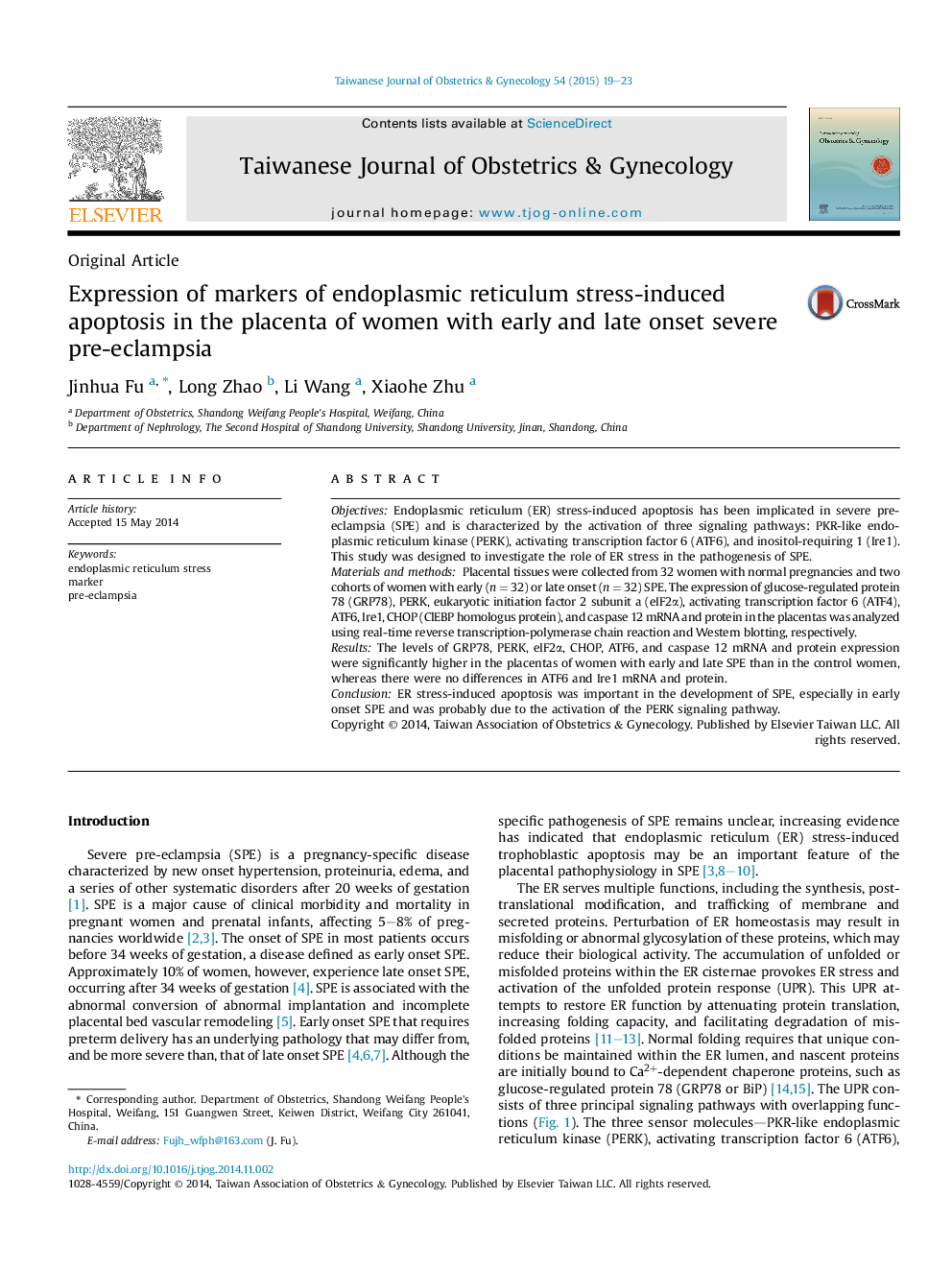| Article ID | Journal | Published Year | Pages | File Type |
|---|---|---|---|---|
| 3974910 | Taiwanese Journal of Obstetrics and Gynecology | 2015 | 5 Pages |
ObjectivesEndoplasmic reticulum (ER) stress-induced apoptosis has been implicated in severe pre-eclampsia (SPE) and is characterized by the activation of three signaling pathways: PKR-like endoplasmic reticulum kinase (PERK), activating transcription factor 6 (ATF6), and inositol-requiring 1 (Ire1). This study was designed to investigate the role of ER stress in the pathogenesis of SPE.Materials and methodsPlacental tissues were collected from 32 women with normal pregnancies and two cohorts of women with early (n = 32) or late onset (n = 32) SPE. The expression of glucose-regulated protein 78 (GRP78), PERK, eukaryotic initiation factor 2 subunit a (eIF2α), activating transcription factor 6 (ATF4), ATF6, Ire1, CHOP (ClEBP homologus protein), and caspase 12 mRNA and protein in the placentas was analyzed using real-time reverse transcription-polymerase chain reaction and Western blotting, respectively.ResultsThe levels of GRP78, PERK, eIF2α, CHOP, ATF6, and caspase 12 mRNA and protein expression were significantly higher in the placentas of women with early and late SPE than in the control women, whereas there were no differences in ATF6 and Ire1 mRNA and protein.ConclusionER stress-induced apoptosis was important in the development of SPE, especially in early onset SPE and was probably due to the activation of the PERK signaling pathway.
